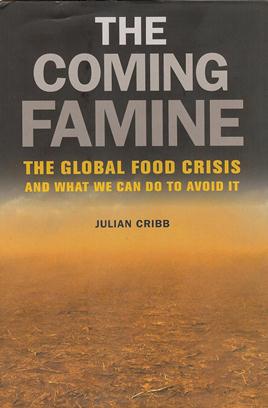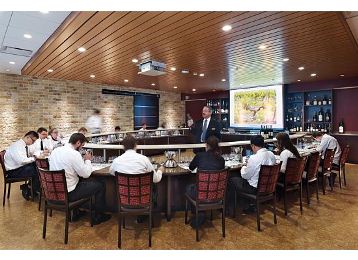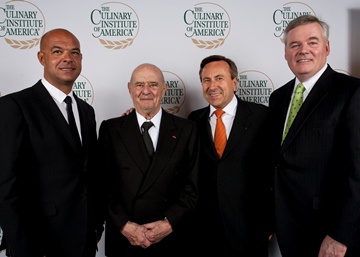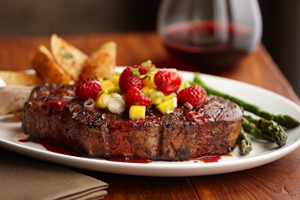Green Tomato: 10 Easy and Effective Ways to Green Clean Your Restaurant
Wednesday, 01 June 2011 09:03By Anselm Doering
Commercial oven cleaners contain some of the most toxic chemicals found in any restaurant kitchen. What works just as well and is safe on the environment? This tip and nine more will help you be more ecologically and even economically sound.
Coke and Pop Rocks can kill. Elvis is coming back. And green cleaning a restaurant is burdensome, expensive and less effective than the traditional toxic approach.
I cringe each time I hear this. The green-cleaning myth, that is. Elvis, I’m not so sure. He may indeed be alive and well and living in Las Vegas.
But, when it comes to green cleaning restaurants, there are many quick, simple, environmentally preferable procedures that SAVE money and IMPROVE cleaning. Immediately.
Here are 10 easy and effective ways to improve green cleaning at your restaurant:

 Are we heading for a worldwide famine by mid-century? Is our very civilization unsustainable? Is it too late to stop the train and turn it around? The answers are yes, yes and no.
Are we heading for a worldwide famine by mid-century? Is our very civilization unsustainable? Is it too late to stop the train and turn it around? The answers are yes, yes and no. Johnson & Wales University's Cuisinart Center for Culinary Excellence in Providence earns LEED gold certification.
Johnson & Wales University's Cuisinart Center for Culinary Excellence in Providence earns LEED gold certification. Culinary Legend Honored at 2011 Augie™ Awards
Culinary Legend Honored at 2011 Augie™ Awards Premium and natural descriptors resonate with consumers of beef and pork menu items, finds Technomic.
Premium and natural descriptors resonate with consumers of beef and pork menu items, finds Technomic.